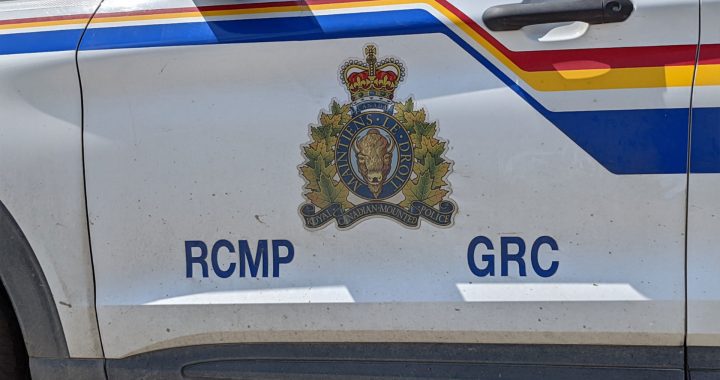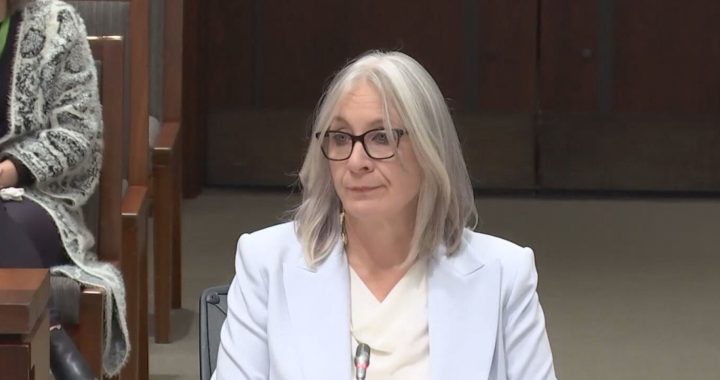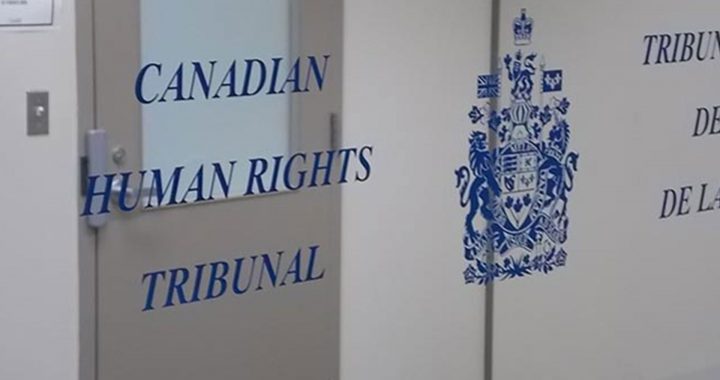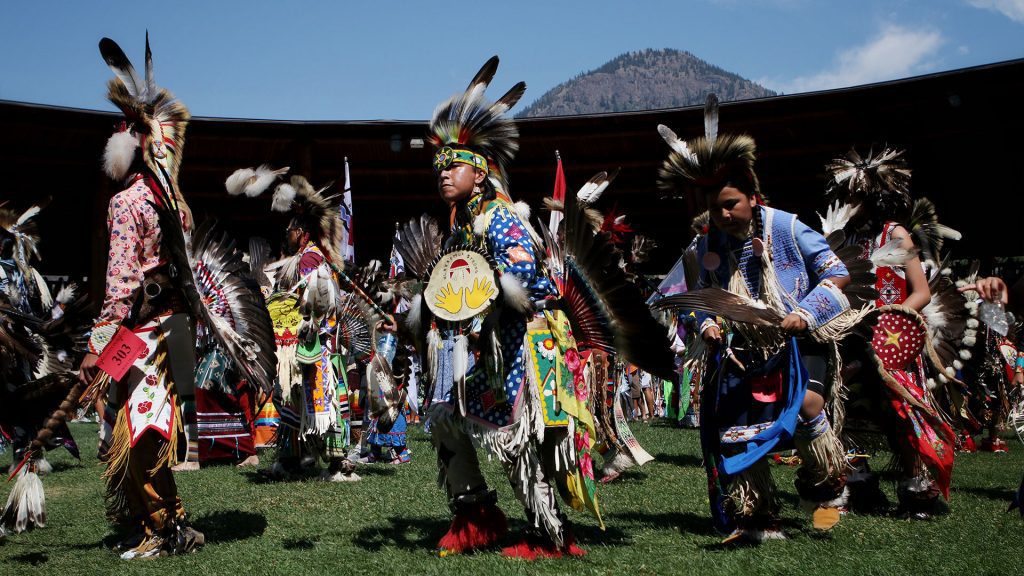
Following a two-year hiatus due to the COVID-19 pandemic, the 41st annual Kamloopa Powwow returned on July 29, for a three-day celebration that honoured residential school survivors and Two-Spirit people.
More than 500 drummers and dancers from across Canada and the U.S. braved near 40 C temperatures during the weekend powwow hosted in Tk’emlúps (Kamloops) in Secwépemc homelands.
It was the first time the powwow has been held since the community detected 215 unmarked graves of former students at the Kamloops Indian Residential School site last year.
About two weeks before the powwow began, the event attracted controversy.
Organizers posted rules and regulations that others quickly denounced as discriminatory, anti-2SLGBTQ+ and colonial. The powwow’s initial schedule of events and contest rules stated powwow dancers needed to be “at least ¼ Native Blood” and must be of “the correct gender” for their categories.
The rules were ultimately revised to be more inclusive.
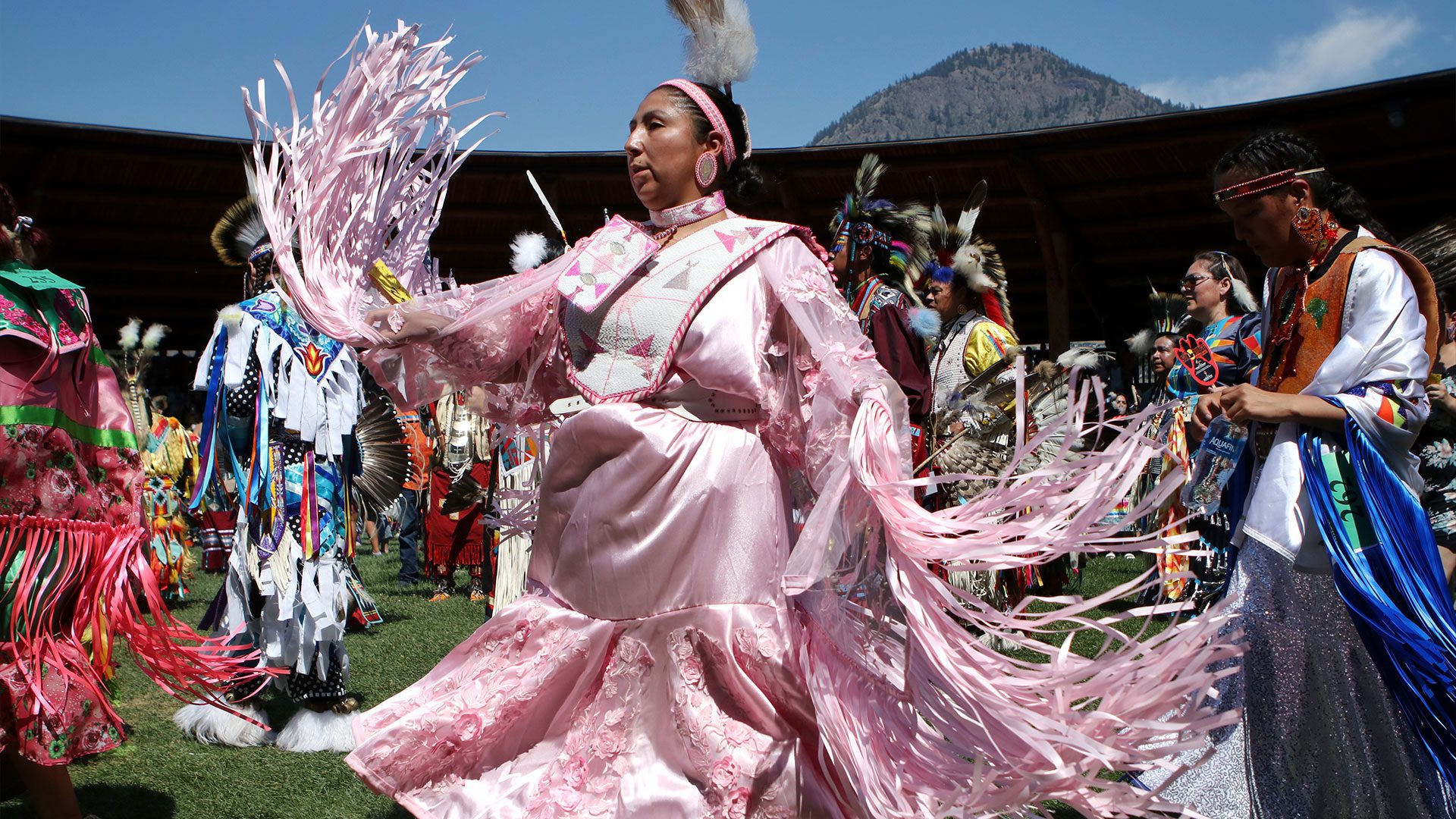
An Every Child Matters flag and a 2SLGBTQ+ flag were among a row of flags that people carried into the arbour during the powwow’s grand entry on July 30, with the latter hoisted by Kukpi7 (Chief) Doug Thomas of Splatsin First Nation.
Thomas said it meant a lot for him to represent 2SLGBTQ+ community members, especially the people in his family who are Two-Spirit.
“When the news came out about the little bit of controversy around the powwow, I know [Kamloopa Powwow Society] acted quickly but so did our leaders,” Thomas said. “When I mentioned I wanted to carry the flag to support not just my family but every Two-Spirit person, the Chiefs were all onboard.”
He added that a family member, who is Two-Spirit, began crying when they heard that he would be carrying the flag.
“It made me feel like I was doing something very special for them, in a small way,” he said.
Following the grand entry, Thomas told the crowd that he wanted every Two-Spirit person to know he supports them.
“I pray that they feel a bit of love and acceptance today; that one day, maybe they won’t have to feel different, that the prejudice against them will someday be gone,” he said.

Before the start of a Two-Spirit round dance, the Kamloopa Powwow Society (KPS) held a special honour for Jeffrey McNeil-Seymour, a Two-Spirit member of Tk’emlúps te Secwe̓pemc First Nation.
McNeil-Seymour, an assistant professor of social work at Toronto Metropolitan University, helped spearhead the powwow’s first Two-Spirit round dance in 2018.
The initiative stemmed from calls to action by Two-Spirit research participants in a study McNeil-Seymour conducted. Although he was unable to attend this year’s powwow, his sister, Alicia Leonard, a Two-Spirit committee member for KPS, and his mother, Jacquie McNeil, were there to represent him.
In a phone interview during the powwow, McNeil-Seymour told IndigiNews he’s grateful to see others shouldering the work of inclusion.
“That important work that needed to be carried on and picked up – I’m just really proud of my sister, Alicia, for standing that work back up for me today, as I’m here in Vancouver receiving chemotherapy treatment,” he said.

McNeil-Seymour said he’s proud of his relatives on the powwow committee for acting swiftly and working with the community to revise the event’s dated policies.
“They totally embraced it. They needed to have that slap on the wrist, and rightfully so,” he said. “I never knew that the policies were like that, otherwise I would’ve been on it like years ago.”
Honouring all of the children and victims of residential schools, he said, also means being inclusive of Two-Spirit people.
“We can’t not have these conversations about these unmarked graves and distance ourselves – or distance the narrative – from the likelihood and potentiality that some of those graves are some of our Two-Spirit children there,” McNeil-Seymour said.
He noted that KPS president Delyla Daniels reached out to him to review the media release that announced the powwow was committed to making changes and being more inclusive. He commended Daniels for making the Two-Spirit round dance an annual feature.
“I think the inclusion of an annual (Two-Spirit) round dance is a good first step in terms of expanding our hearts and our minds to be calling our Two-Spirit people back in,” he said. “I think that we need to hold in our hearts that we had really swift action, and this is a really huge win.”

After McNeil-Seymour was honoured at the powwow, everyone in attendance was invited to participate in the round dance, with the arbour quickly filling with hundreds of people.
“I think it’s really important to have that visual cue,” he said, because it allows youth and parents to see the community engage in “a loving act” in support of Two-Spirit people.
“It’s the time of our great together-ing – that’s the time that we’re in,” McNeil-Seymour added. “It’s a beautiful thing to compassionately interrupt space like that, to do so in a loving and meaningful way.”




